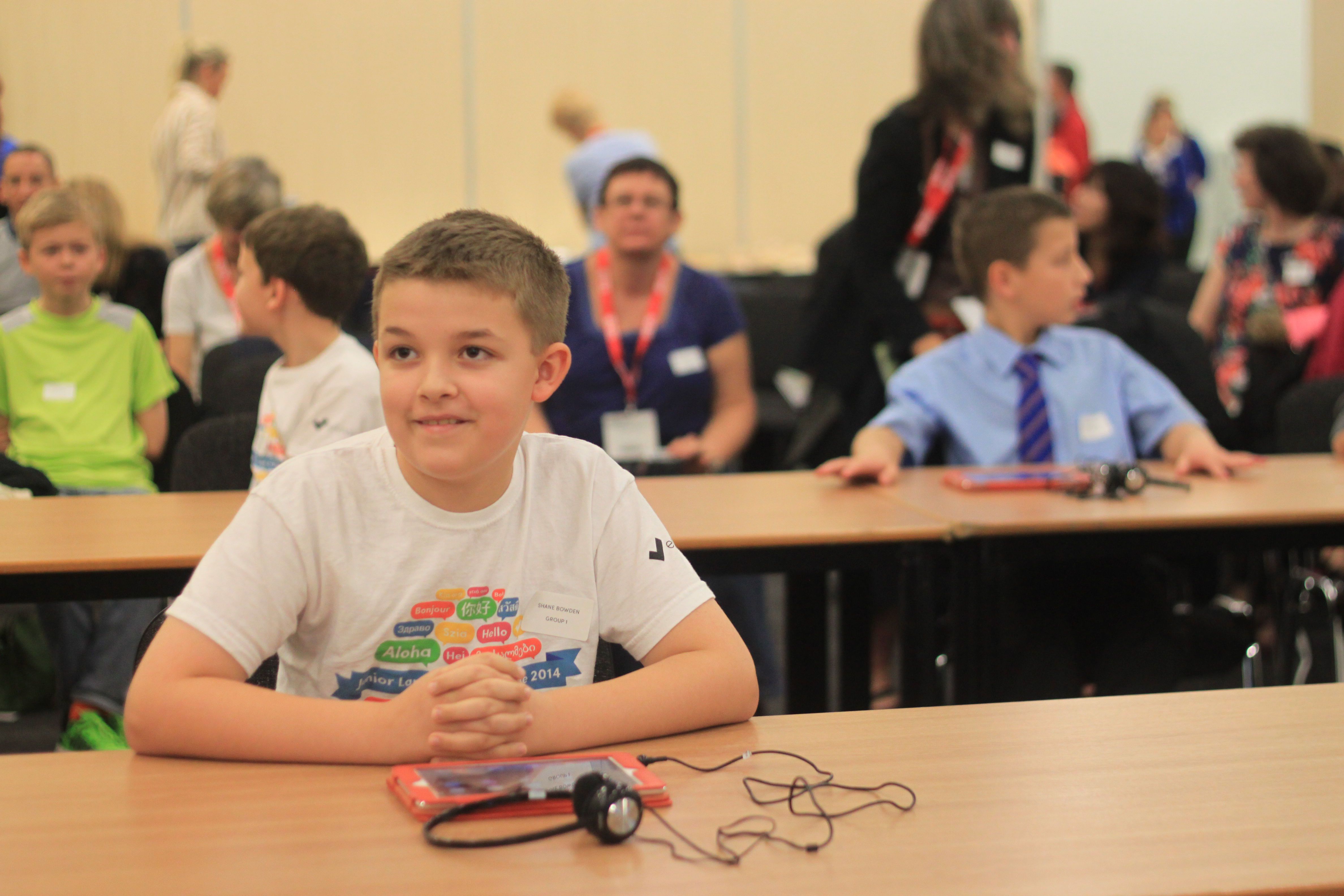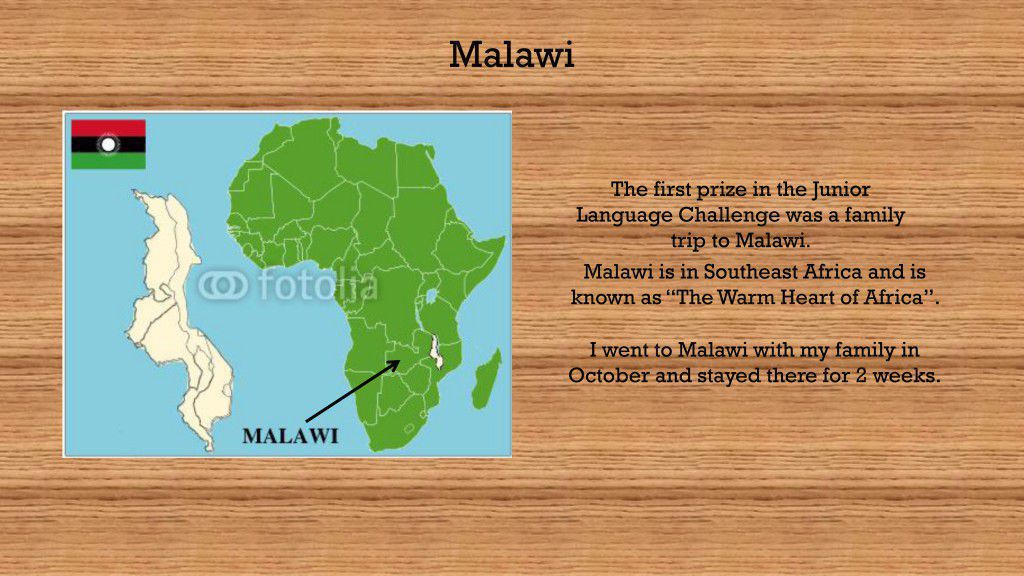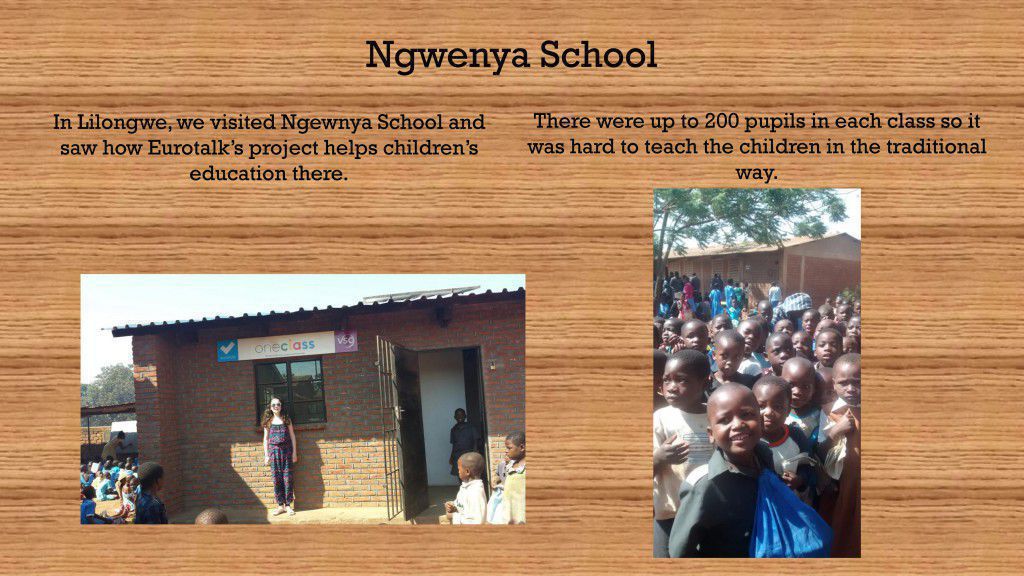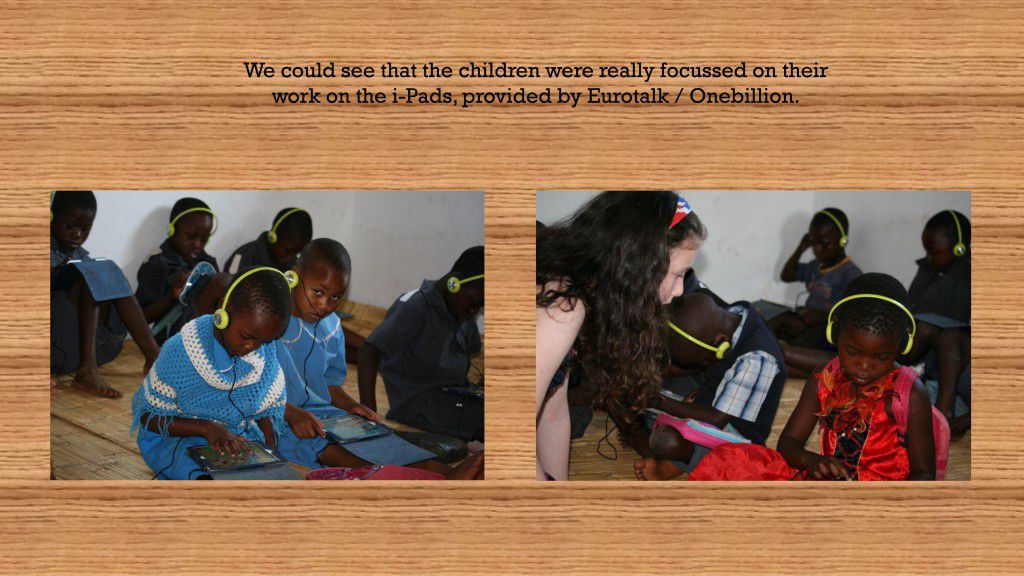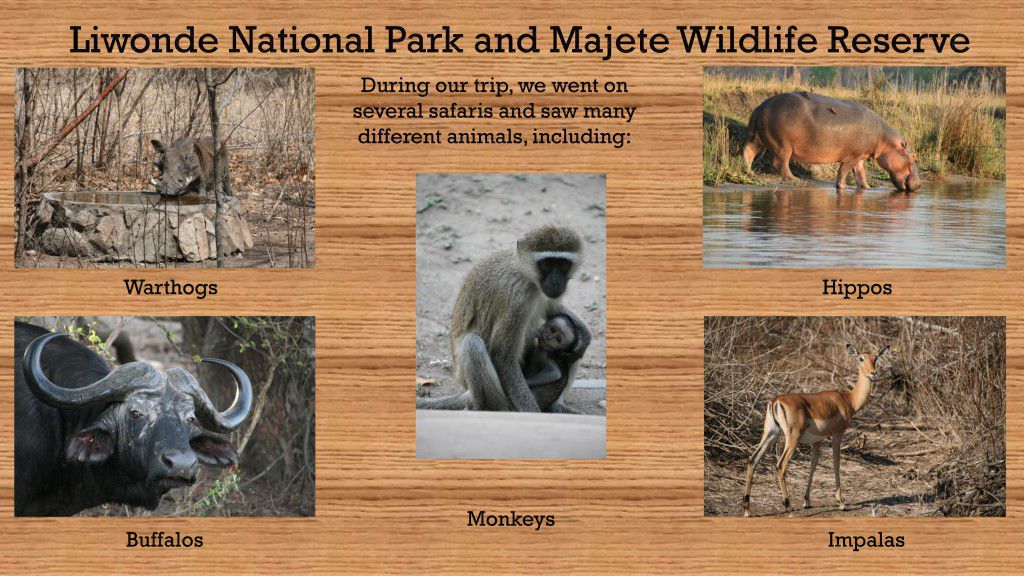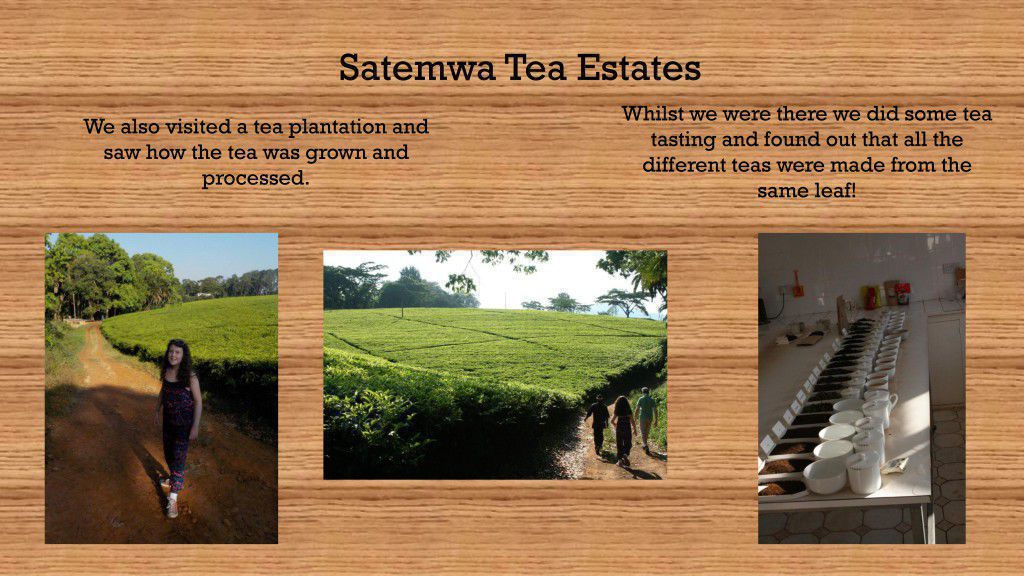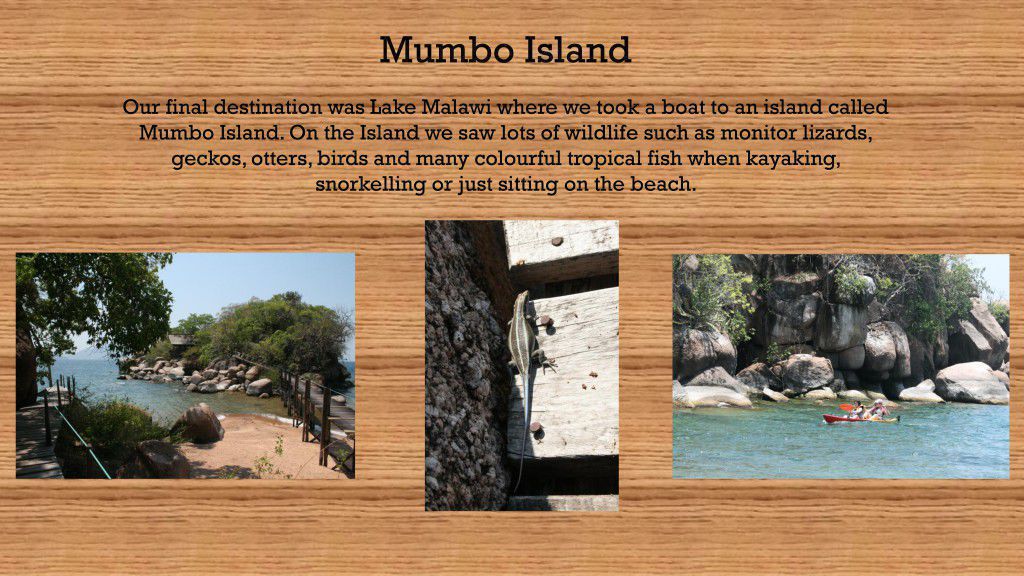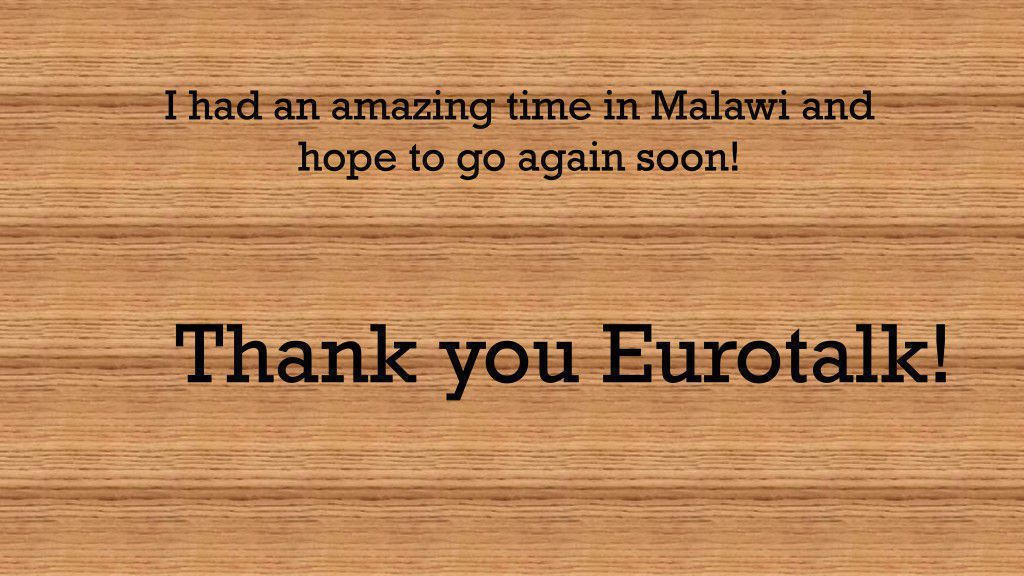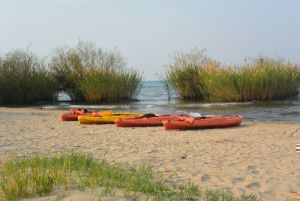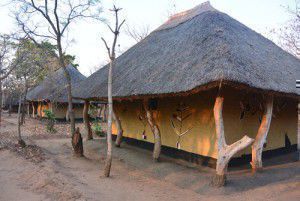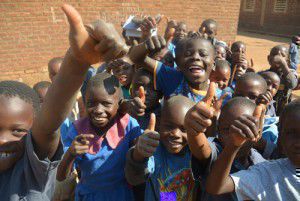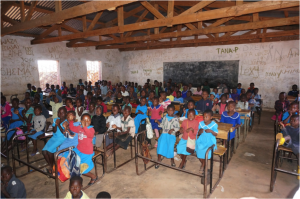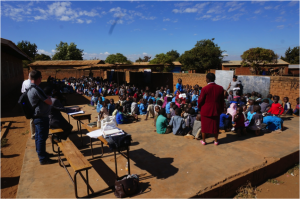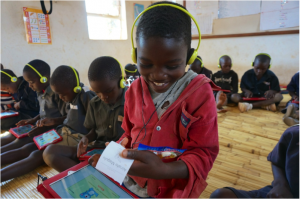Transforming education: why we’re proud to support onebillion
As you may know, EuroTalk is a proud supporter of onebillion, a non-profit organisation working to transform education for one billion children in developing countries. You may even have used their maths apps with your child (if you haven’t discovered them yet, they’re on the App Store). To find out more about onebillion’s fantastic work, and how far they’ve already come, read on…
Zahira is a six-year-old Malawian child. As a young girl in Malawi, she only has a 50% chance of finishing primary school, and a 50% chance of being married off before she’s 18. In this short TED talk by onebillion’s co-founder Jamie, he explains how our oneclass project is helping to change her future. onebillion’s educational apps are being used in schools all across Malawi, to provide accessible and effective maths and literacy learning to primary school children. This time a year ago, we had a oneclass centre in two schools in Lilongwe. Today, we have the funding to open almost a hundred new centres in schools all over the country, and bring transformational education to another 30,000 children over the coming three years. This talk was given by Jamie at TEDxYouth in Lilongwe last year: watch it to find out more about onebillion’s project and where we’re headed.
For more information, visit onebillion’s website.
There’s also still time to enter the Junior Language Challenge, our annual competition for primary school children in the UK, which has already raised over £5,000 for onebillion. We’d love to make it £6,000 (or more)!
JLC winner Ella’s Malawi trip
Today we’re very excited to share a presentation from Ella Whittingham, from West Bridgford in Nottingham, who won the Junior Language Challenge in 2013. Ella and her family have just got back from her prize trip to Malawi, and we’re really glad to hear that they had a fantastic time! Read on to see what they got up to, and what this year’s champion, Yash, has to look forward to…
By the way, if you’d like to be kept informed about the Junior Language Challenge 2015, which will start in March, you can sign up to our mailing list on the JLC website. And to learn more about the work of onebillion at Ngwenya and other schools in Malawi, find them at onebillion.org.uk.
Click on any of the slides to see a bigger version.
10 reasons to visit… Malawi
Today’s post is by Alex from onebillion. As you may know, onebillion are an organisation set up by Jamie and Andrew from EuroTalk to provide basic maths, reading and English teaching through apps to children in developing countries (and they were recently featured in a BBC Click report). A few weeks ago, the whole onebillion team travelled to the African country of Malawi to expand their project to a new school.
Perhaps Malawi might not seem like an obvious choice for a visit, but here are ten reasons why Alex thinks you should give it a try 🙂
1. ‘Interesting’ foods
I’m not sure if this is a reason to visit Malawi or not, but it is quite interesting to see what some of the locals eat. Typical local cuisine mainly consists of a maize porridge called nsima, which they eat 2-3 times a day, but you can buy great-looking fresh fruits for next to nothing. You can also get international cuisine from some restaurants in Lilongwe or Blantyre (the two major cities). But a particular highlight is seeing the ‘mouse boys’ who sell sun-dried mice on sticks (complete with fur) on the side of the road. For some reason none of us has been brave enough to try one yet. You also have to drink some fresh-ground Malawian coffee – and bring back some beans for the EuroTalk and onebillion offices, of course!
2. Lake Malawi
This is one place you have to see before you die. The most beautiful place I’ve ever been to. You can stay in a simple straw beach hut, see the stars and wake up to the sound of the waves and nothing else. The lake is home to many varieties of fish, alligators and hippos, and we saw dozens of monkeys and other critters all around the lake. Including some rather terrifying new species of bugs. Be careful to check whether it’s safe to swim in the part of the lake you visit, but even if you can’t it’s an amazing place to see some stunning nature.
3. Get involved in a voluntary project
onebillion recently returned to Malawi to check up on our progress with delivering tablet-based learning in Biwi school and to expand to another, larger school. We were so excited to see how much progress the children have made with their maths skills. But there are many other organisations working there on things like building schools, digging wells and volunteering as a teacher or healthcare assistant. See Malawi Volunteer Organisation or VSO, for example.
4. See a totally different way of life
Even in Lilongwe, the capital, Malawi is not very developed. You’ll be bumping along mud roads and seeing people walk past with bicycles stacked up with insane quantities of firewood, huge towers of mud bricks being baked dry and barefooted children running around with chickens and goats. Just seeing how people go about their daily lives will give you a new perspective, and chatting to some of the locals and children who have never seen technology such as smartphones or tablets is really worthwhile. Seeing the faces of groups of Malawian children when they first play a maths game on a tablet or seeing our flying ‘drone’ camera was priceless.
5. Experience life without modern conveniences
You know all those things you take for granted, like running water, drinking water on tap, electric lights, flushing loos, wifi? Maybe try a couple of days in a traditional Malawian-style hut and say goodbye to all of those things for a while! Whilst freezing ‘showers’ from a bucket, candlelight and a few days without Instagram might be hard to get used to – it’s a really interesting experience which makes you appreciate all the home comforts you took for granted before. And you might find you see and experience something new when you’re forced to go without Facebook for a couple of days. Kumbali Village in Lilongwe is the perfect way to experience a back-to-basics stay but with clean water available and clean rooms too.
6. Wildlife!
One of the first things you’ll notice as you take a walk or drive around when you arrive in Malawi is all the different plants and animals that you’ll see everywhere. You can take a safari (the Swahili word for ‘journey’ by the way) or visit one of the country’s incredible national parks, such as Liwonde and Lengwe to see hippos, lions, elephants and more. But you’re likely to spot monkeys, baboons, colourful insects and birds just out and about. Just watch out for chickens, goats and dogs running in front of your car when you’re in one of the villages!
7. Climb Mount Mulanje
I didn’t actually do this when I visited, but Zane and Alan from onebillion did on their visit and said it gave them a really great sense of achievement, as well as an awesome view. Mt Mulanje is 9,849 feet high – quite a climb, but not requiring special equipment or training.
8. Friendly people
We often say this about a place, but in Malawi it really is true! Malawi is called the ‘warm heart of Africa’ and much of this is to do with how warm and friendly people are. They are really genuinely interested to talk to people from other places and happy to share their lives and interests with you in return. They’re also really happy if you manage a couple of simple Chichewa phrases: greet people with ‘moni’ (hello), say ‘zikomo’ (thanks) and ‘chonde’ (please) and you’ll get along fine.
9. Unspoiled landscape and scenery
Depending on the time of year, Malawi is either lush and green or dry and very dusty. However it is always a very impressive country to see, with a variety of different terrains and landscapes, including mountains, lakes and rivers. There are a lot of open spaces and not many tourists, so it’s a great place to see some real and unspoiled nature where commercialism hasn’t taken over yet.
10. The climate!
Ok, since our trips to Malawi are mainly about working on our ‘one billion children’ project we don’t have sooo much time for sunbathing. We’re normally up with the sunrise at 5.30am, in school all day and up charging and configuring tablets, processing data or marking until about 11. But there’s normally some time to relax as well, and sunbathing might also happen (only if our work is done first, honest). You might think of Malawi as extremely hot, but most of the year it is a really nice temperature around 30 degrees and not too humid. Remember your suncream (and insect repellent!) and it really is a great place to soak up some sun.
Alex
An update from Malawi
As you may know, EuroTalk have been working for several years towards the goal of bringing the best possible education to one billion children in developing countries. This work is something we’re very passionate about, and so we’re excited to announce the birth of onebillion, a charitable organisation set up by Jamie and Andrew from EuroTalk to focus solely on making this vision a reality. EuroTalk are proud to support onebillion as they continue their vital work, and we’ll be bringing you regular updates and news on what they’ve been up to.
So for today’s post, it’s over to Alex for an update from Malawi:
Over here at onebillion, we’re working hard on producing the final six topics for Maths, age 4-6, writing and programming a practice app to accompany Maths, age 3-5 and planning a whole lot of new Learn to Read and Letters and Sounds material. We’re also making progress, slowly but surely, towards expanding our Masamu (maths) project throughout all 5,000 schools in Malawi!
So, what have we been up to in Malawi recently? Well, first and foremost, we’re in the process of looking for a second school in which to implement our Masamu intervention. This has been running successfully at Biwi school in Lilongwe for almost a year now and an independent study by the University of Nottingham has shown that using the apps for as little as eight weeks can drastically increase children’s level of maths knowledge. So Andrew and Jamie have spent a couple of days at Ngwenya school, also in Lilongwe, to assess its suitability as a second school for us to get working in. Ngwenya seems to be a well-organised school, and even has desks in its classrooms! However it is a huge school with 5,000 pupils in total – meaning it will pose some challenges in terms of scaling our current intervention.
Work is already under way to construct a new learning centre in the school, like the one we’ve been using at Biwi, where the children will have a dedicated space to come and work in, and there will be somewhere to store and charge the ipads.
Speaking of charging the devices, we’ve also been road-testing solar-powered charging to allow large quantities of iPads to be charged even in rural schools which may not have electricity. Biwi school has access to a power socket in the head teacher’s office, but this is restricted to just the one room, and even this is fairly uncommon in Malawian schools, so finding an alternative way to charge the devices was really important to us, and will continue to be as we look at scaling further afield in other parts of Africa.
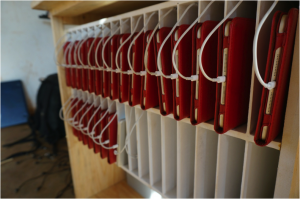
Our solar charging stations have been working great so far, and are simple for the teachers to use.
We’ve also just implemented our brand-new battery-powered, low-cost printers at Biwi. These allow the children to immediately print their certificates which they win as they complete each topic within the Masamu apps. These are printed on a cheap and durable receipt-style paper, which is a simple and low-cost way for the children to see the results of their hard work, and the teachers to keep records of their achievements. This will work hand in hand with our new server version of the apps, which was the main purpose of Jamie and Andrew’s visit. It allows us to receive data from schools in Malawi almost instantly, keeping us up-to-date on which children have completed which topics, and their results. Hopefully we’ll start to receive data from the server within the next week or so, and will be able to see the apps being used in real time.
So it’s onwards and upwards in the onebillion office, and we’re really excited to see results coming in from Biwi school and to get our Masamu apps into Ngwenya school. We’re also hoping to get some new topics ready in Chichewa within the next couple of months, which will extend the current Masamu 4-6 app from twelve to eighteen topics!
You can find onebillion at onebillion.org.uk, like us on Facebook or follow us on Twitter @1bnchildren for news, updates and pictures from Malawi.
Alex
